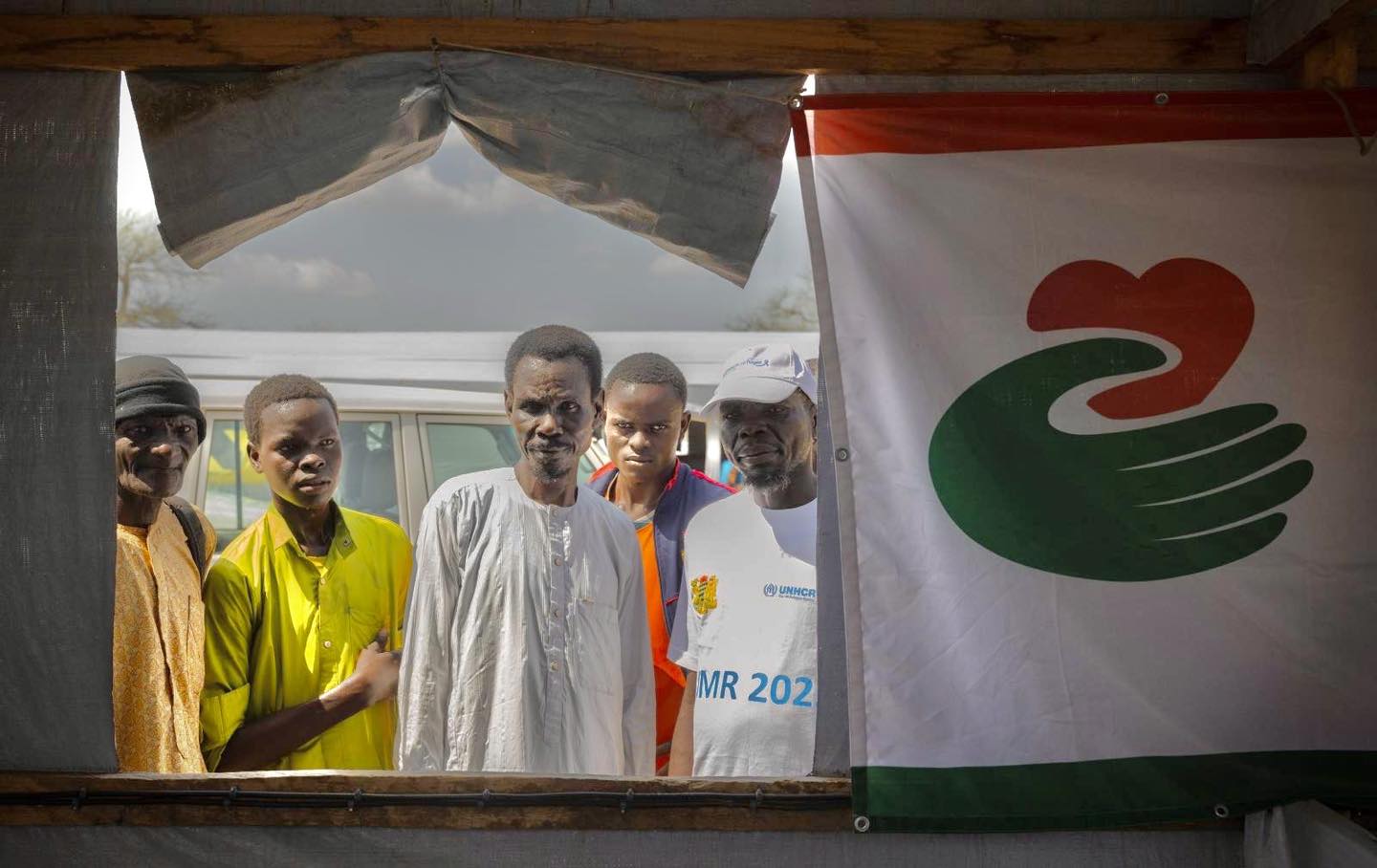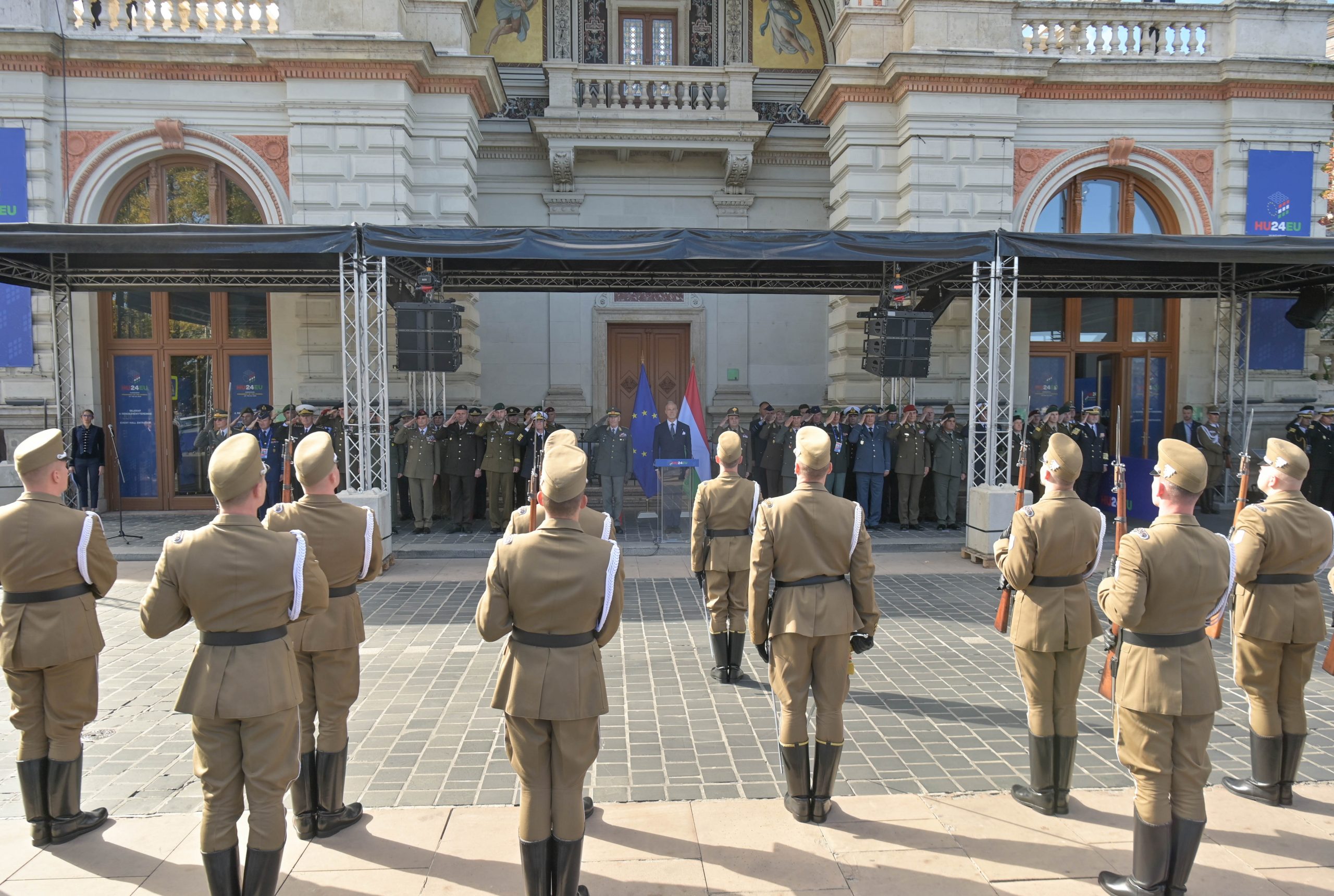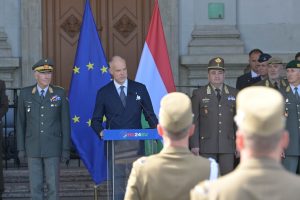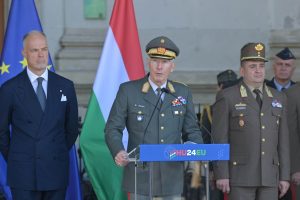
The Foreign Minister consulted his counterpart from Mali on how Hungary could contribute to a stable Sahel.Continue reading

The European Union Military Committee’s (EUMC) external Chiefs of Staff meeting, held in the Castle Garden Bazaar (Várkert Bazár) in Budapest, started on Monday. At the opening event, Hungarian Defense Minister Kristóf Szalay Bobrovniczky, as well as Robert Brieger, the Austrian chairman of the EUMC, spoke about the future military operations of the EU.
Kristóf Szalay-Bobrovniczky, calling the war in Ukraine the greatest challenge and risk of the moment, stressed that the course of the war has not been changed by the massive military aid and economic sanctions, and that peace must be achieved through diplomacy. “Hungary feels the weight of history and is aware of the terrible human and material consequences of the war,” he said, paying special attention to the history of the Bazaar, rebuilt after the war’s destruction.

Kristóf Szalay-Bobrovniczky during his speech. Next to him Robert Brieger (L), chairman of the EUMC, and General Gábor Böröndi (R), Chief of the Hungarian Defense Staff. Photo: MTI/Bruzák Noémi
Concerning the Western Balkans countries, he said that Europe must remain determined to pursue EU accession negotiations. Hungary remains committed to the Western Balkans, he stressed, mentioning the NATO mission in Kosovo, of which Hungary is one of the biggest contributors, and the EU peacekeeping mission in Bosnia and Herzegovina, EUFOR Althea, led by a Hungarian general.
Commenting on the situation in the Middle East, Szalay-Bobrovniczky pointed out that the region is on the brink of a war that must be avoided at all costs. “The Red Sea trade corridor is under constant threat from the Houthis, which with the deterioration of the security situation, contributes to a further increase in mass immigration and all its undesirable consequences.
These threats must be prevented at the point of departure, this is our agreed strategy,”
he added.
He noted that Hungary was not only making proposals but also taking concrete steps to find a solution, mentioning its complex support for the Sahel region, “one of the main departure points for illegal immigration.”
Robert Brieger, chairman of the EU’s Military Committee, recalled that the European Union had trained more than 60,000 Ukrainian soldiers and had recently rescued 240 ships from attacks by Houthi rebels in the Red Sea in Operation Aspides.
Despite these achievements, he warned that the security environment in Europe is deteriorating at an unprecedented rate.
Russia continues its “unjustified belligerent aggression” against Ukraine, the conflict in the Middle East has reached a new level, the Israeli army is attacking the Houthi rebels in Yemen, and the Western Balkans continue to face challenges, he explained.

Robert Brieger, chairman of the EUMC during his speech. Photo: MTI/Bruzák Noémi
The European Union needs to develop a more flexible, resilient, and competitive strategy to succeed in the future, the chairman said.
As part of this, the EU is reviewing the operational frameworks of its missions in three priority areas:
Robert Brieger emphasized:
The meeting will discuss Europe’s defense capabilities, how to reduce the shortfalls in the defense industry, and the activation of rapid deployment forces in unconventional environments, which is unprecedented.”
He envisages that by 2024-2025, the EU’s deployment capabilities will allow for the rapid redeployment of up to 5,000 EU troops.
The EU Military Committee is the highest military decision-making body in the EU, composed of the Chiefs of General Staff of the Member States, represented at weekly meetings by permanent military representatives seconded to Brussels. The EUMC plays a key role in military cooperation between Member States, crisis management, and conflict prevention. The EUMC leads and manages EU military activities, including the planning and execution of military missions and operations and military capability development, within the framework of the EU’s Common Security and Defense Policy.
The #EU Military Committee at CHODs level is officially opened by the MoD @SzBobrovniczky the CHOD and @ChairmanEUMC in a ceremonial event at the prestigious Várkert Bazár. Looking forward to the discussions to enhance #EUdefence ️@HU24EU pic.twitter.com/MqZyzUbh3e
— Chairman of the EU Military Committee (@ChairmanEUMC) October 14, 2024
The EUMC conducts two formal CHOD level meetings per year. One during spring (usually in May) and one during autumn (usually in October). The meeting in Budapest between October 14-16, is the second formal CHOD level meeting outside of Brussels. The first formal CHOD level meeting outside of Brussels was organized by the Spanish Presidency of the Council of the EU in October 2023, in Sevilla, Spain
Via MTI, Featured image: MTI/Bruzák Noémi